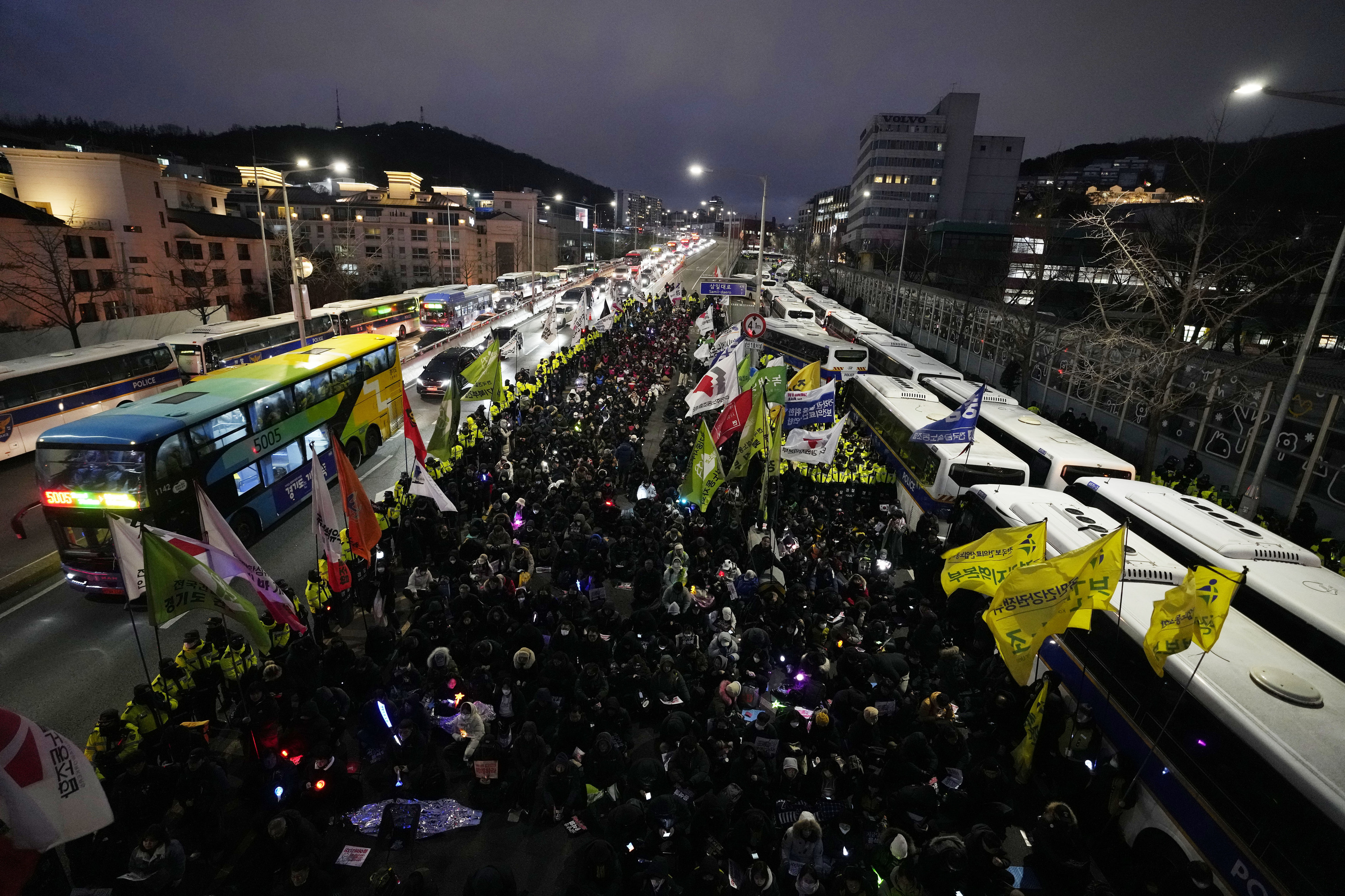South Korean police and anti-corruption agents unsuccessfully attempted to arrest President Yoon Suk Yeol on Friday. He had been suspended from his duties after Parliament voted in December to impeach him for the second time due to declaring martial law, which turned South Korea into a military regime for less than six hours on the night of December 3rd.
Yoon (64 years old), accused of abuse of power and insurrection, a crime punishable by life imprisonment or death penalty, had been under a detention order since last week. However, when agents arrived at the presidential residence to execute the order, they encountered a scene unbecoming of a country that prides itself on being one of the great global democracies: the besieged leader hidden behind an extensive security team that blocked access to the agents and prevented the arrest.
Several hours of tension and uncertainty unfolded at the presidential residence. The Corruption Investigation Office (CIO), the department investigating Yoon's brief declaration of martial law, ultimately canceled the attempt to execute the arrest warrant, which will remain in effect until next Monday.
It is unknown if authorities will attempt to arrest Yoon again over the weekend, but the events of this Friday add another embarrassing chapter to the current political crisis in the fourth-largest economy in Asia.
"We determined that it was virtually impossible to execute the arrest warrant due to the ongoing confrontation and halted the execution," stated the CIO in a press release following the confrontation with the president's security forces.
"I will fight to the end," Yoon wrote on Thursday in a letter to his most loyal followers, those linked to the most nationalist and conservative faction of the ruling party - including well-known extreme right-wing YouTubers and leaders of evangelical churches - who also gathered on Friday near the presidential residence to support the ousted leader who could not withstand a second motion against him that passed with the support of over two-thirds of the legislature.
The president's powers remain suspended until the impeachment is reviewed by the Constitutional Court, where judges have the final say on whether Yoon's removal is justified. Yoon's replacement, Prime Minister Han Duck-soo, was also ousted on December 27th in another motion for his refusal to immediately appoint the three judges needed to complete the nine-judge panel required by the Constitutional Court in its deliberation on the suspended Yoon's future.
Following Han's removal, the position of interim president was assumed by the current Finance Minister, a veteran official named Choi Sang-mok (61 years old), who has already filled two of the vacancies on the Constitutional Court to avoid being involved in another impeachment process.
South Korean media reported that on Friday, around 1,200 supporters of Yoon gathered in front of his official residence while a team of 120 police officers and 30 anti-corruption officials failed in their attempt to execute the arrest warrant, the first against a sitting South Korean president.
If Yoon is ultimately arrested, he would become the first sitting president to be arrested, and the anti-corruption agency would then have 48 hours to request a formal arrest warrant.
